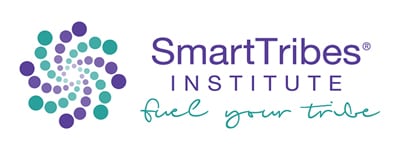
Bust Your Leadership Blindspots In 3 Steps
November 5, 2019
Strategy Myths & Tools
November 18, 2019
What if 20 more minutes of sleep could boost your brain and improve your work performance 2-3x?
Would you make more of an effort to get that elusive 20 minutes?
Everywhere I go, people tell me they’re not getting enough sleep. As an executive coach, it’s key that I help my clients perform at their peak. That includes whether they are sleep deprived or not!
Recently I met with Dr. Jessica Payne, Cognitive Neuroscientist & Assistant Professor at Notre Dame. Payne specializes in sleep and studies how it affects stamina and our ability to perform. Here’s what I learned.
The State of Sleep–Worldwide
The amount of sleep you need is highly personal, and ranges between 4 and 12 hours per night. The average is 8. Most of us fall asleep within about 20 minutes of laying down. During the first part of the nightly sleep cycle we get most of our Slow Wave Sleep. This is deep, physically rejuvenating, and hard to wake up from.
Next we enter Rapid Eye Movement, or REM sleep. This is where we make mental connections, are most creative, and process plus regulate emotions. Those of you that have attended my firm’s trainings will remember our request that you review your notes right before bed. Doing so gives your sleeping brain a “project” to work on. Our clients find they retain up to 40% more of our leadership training material when they review right before bed.
Why? Because during Slow Wave Sleep you consolidate many of your most important memories. During REM, your brain is almost as active as when you are awake.
REM sleep is the time of night when your Dorsolateral Prefrontal Cortex, or executive command center, is deactivated. This means you are now wildly creative and open to all possibilities. This fabulous REM state dominates the latter part of your nightly sleep cycle. What a great way to boost your brain!
We need both SWS and REM for the proverbial “good night’s sleep.” Yet our REM state gets short-changed when we have to wake up too soon. This is when what I call REM Rip Off occurs. And this, my friends, is where the trouble begins.
What Happens When Your REM is Ripped Off
There are many signs of REM Rip Off. They include irritability, excessive focus on the negative, inability to see the positive, a glass half empty viewpoint, general crabbiness and less ability to enjoy life.
Why? Because your Hippocampus and Anterior Cingulate Cortex (part of the Prefrontal Cortex where creativity, planning, problem solving, innovation reside) are more active during REM. These essential parts of your brain put the brakes on, and also serve to regulate emotions. In REM Rip Off, these parts of the brain can’t do their job very well. The result is that your Amygdala becomes overactive (since the emotional brakes aren’t on). This means you’re more grumpy, unhappy and prone to only remembering the negative.
A full night’s sleep improves your ability to regulate emotions. Period.
3 Solutions to Boost Your Brain Power
1. Get 20 More Minutes Sleep
Payne suggests that adding a mere 20 minutes more sleep per night can boost performance at work by as much as 2-3x. Wow.
How can you get 20 more minutes? Go to bed earlier, sleep later, take a 20 minute power nap, or perhaps even use what she calls a “sleep proxy”. This is mindfulness practice/meditation, reflective walking or another offline period during restful wakefulness. A 10-20 minute nap is tremendously effective too. Just be sure to stop at 20 minutes to avoid sliding into Slow Wave Sleep (where you’re in deep sleep and will feel groggy upon waking).
2. Moderate Stress
Chronic stress results in your body cranking out cortisol, which is toxic to brain cells. Excessive stress may also shrink your Hippocampus and make your Amygdala hyperactive (grrrrrr). In escalated stress we focus on negative memories too. One solution is to activate your parasympathetic system with a 5 minute visualization or relaxation exercise, short walk, burst of exercise, or breathing exercises. All are likely to build neural tissue.
3. Boost Positive Emotions
More positive emotions will boost your stamina too. Watching funny movies, frequent laughter, and doing nice things for others all help. Here’s a quick way to forge a positive neural pathway around gratitude. Just in time for Thanksgiving, here’s the Gratitude Process we share with our clients:
Close your eyes. Focus on a blessing in your life. Identify something you are thankful for. See an image of this blessing in your mind’s eye. Offer a silent “thank you” to the person or object of your blessing. Relax into the feeling of gratitude. Take a deep breath. Feel more gratitude.
Brain research (from UCLA) shows that six doses of feeling 30 seconds of gratitude daily (a whopping 3 minutes!) will enable your neurons to fire together. They will wire together around gratitude within a mere 2 weeks. This means you’ll more easily and frequently access the feeling of gratitude.
I did this process for 2 weeks, and found I was internally saying “thank you” as I awoke each morning. So if you must be sleep deprived, use one of Payne’s strategies above, and bask in the benefits.
Here’s my gift to you: a 6 minute video with a visualization + gratitude process combined. I am grateful to share my life with inspiring leaders like you!




